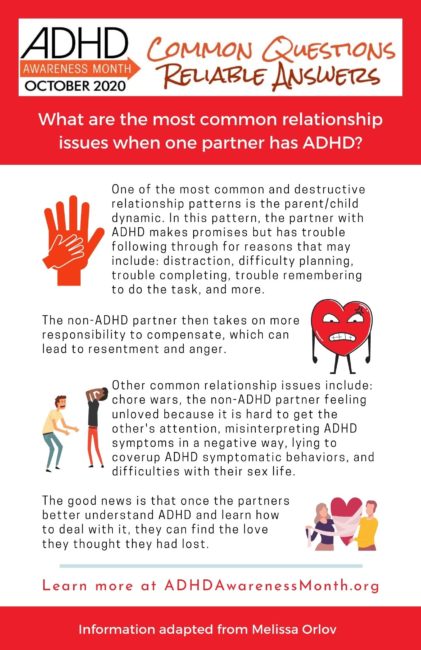ADHD brings very consistent patterns to romantic relationships, particularly when it goes undiagnosed or under-managed. One of the most common, and most destructive, is what I call “parent/child dynamics.” In this pattern, the ADHD partner makes promises but has trouble following through on those promises for reasons that include: distraction; difficulty planning; trouble completing; trouble remembering to do the thing, and more.
The ADHD partner is “consistently inconsistent,” which means the other partner cannot rely on him or her. Because the non-ADHD (or more organized other ADHD) partner never knows what will or won’t happen, s/he takes on more and more responsibility to compensate. Many adopt an ‘if I don’t do it, it won’t get done’ attitude. Unfortunately, the burden of taking on so much eventually leads to resentment and anger in the non-ADHD partner, particularly after children are added to the family. In response to the non-ADHD partner’s anger, the ADHD partner then also gets angry. It becomes a negatively reinforcing, downward spiral of interactions.
Other common relationship issues include: chore wars; having the non-ADHD partner who feels unloved because it’s so hard to get the ADHD partner’s attention; misinterpreting ADHD symptoms in a negative way; lying and cover ups of ADHD symptomatic behaviors; and difficulties with their sex life. The good news is that once partners better understand ADHD and learn how to deal with it, they can find the love they thought they had lost.
About the Author

Melissa Orlov is the founder of ADHDmarriage.com, and author of two award-winning books on the impact of ADHD in relationships, including The ADHD Effect on Marriage (rev. 2020). She is considered one of the foremost authorities on the topic of how ADHD impacts adult relationships.

